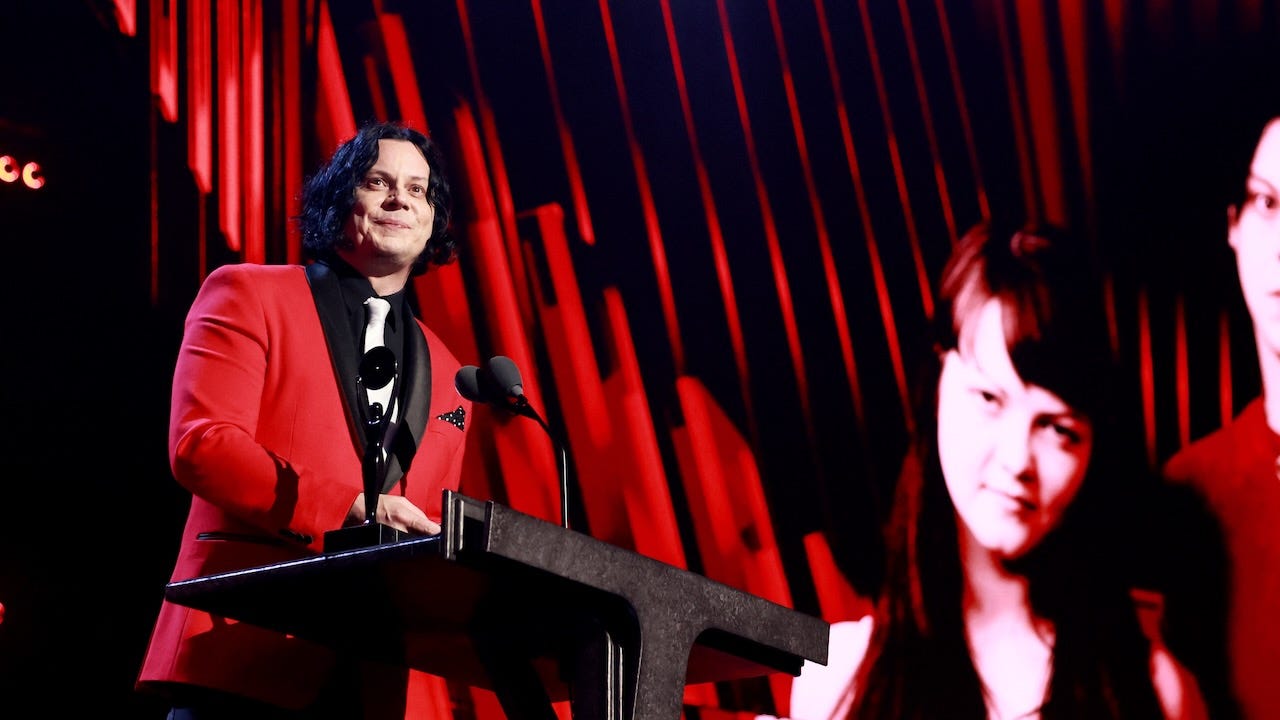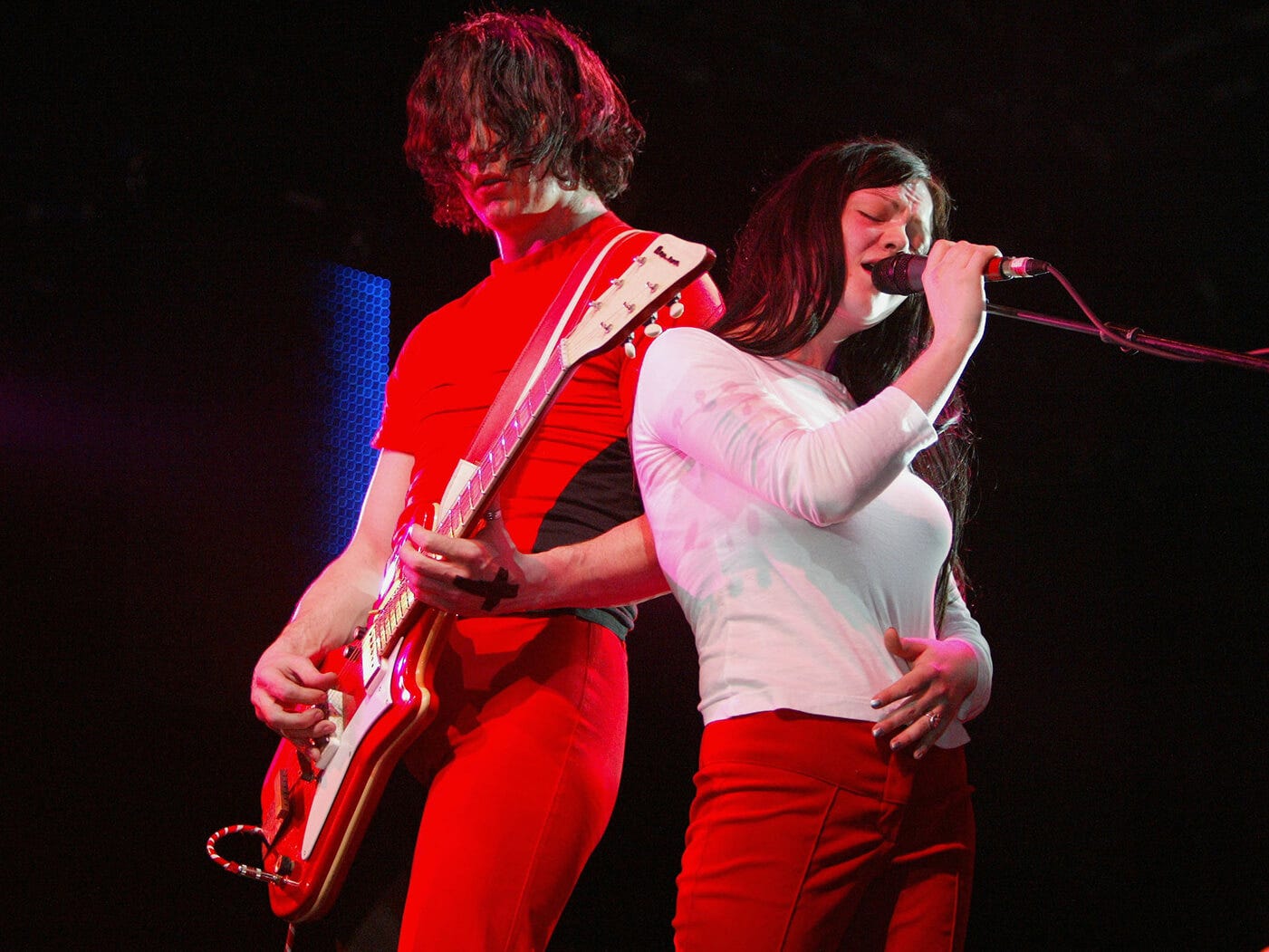The White Stripes: Garage-Punk Theology
Jack White's simple depth at the Rock and Roll Hall of Fame
Image: consequence.net
The Parable of a Smile
The White Stripes, a minimalist rock, punk, blues, and folk duo from Detroit, were recently inducted into the Rock and Roll Hall of Fame. Founded by ex-spouses claiming to be brother and sister, always clad in their signature red, white, and black, Jack and Meg White created a wholly original sound and mystique that — as the induction proves — was remarkably durable. Yet one aspect of their creative approach often gets overlooked: their spirituality.
After a heartfelt (and amusing) introduction by punk legend Iggy Pop, Jack took the stage and delivered a refreshingly humble acceptance speech filled with praise and gratitude for everyone who had helped the White Stripes along the way. Then came a twist. Jack read a parable he said he “meant to send to Meg but hadn’t gotten around to it.” It began as a touching version of their origin story — a desire, “like the Little Rascals, to just put on a show.” And then came the curveball:
With their bare hands, the two started to clap and sing and make up songs. Some people kept watching and swaying and moving. Then one person even smiled. The boy and the girl looked at each other, and they also smiled. They both felt the sin of pride, but they kept on smiling — smiling from a new freedom, knowing that they had shared and made another person feel something. They thought the person smiling at them was a stranger, someone they didn’t even know. But it wasn’t just a stranger. It was God.
It was God? What did he mean by that? As the final line of a speech summing up a 28-year career, it couldn’t have been casual.
If you’ve followed Jack’s career (as I have), you may have seen the signposts of this sentiment. Jack White has always understood that what he does is transcendent. He’s described creating music as “like praying” or “channeling something bigger.” He’s compared the stage to a church, the drumbeat to a heartbeat, and the audience to a congregation. Even the White Stripes’ aesthetic — red, white, and black — reflected a childlike simplicity mixed with raw emotion. The whole project was about stripping away pretense to reveal something pure.
Jack’s parable — “one person even smiled” — captures the artist’s power to move another human soul. It’s as if he was saying, We thought we were just playing for strangers. But in that smile, we saw the holy — proof that what we made came from somewhere beyond us and reached somewhere beyond us. “God” is the stranger who smiles: the moment when an honest act of creation bridges two souls and reveals something eternal. Moving another human soul is the closest most of us ever get to touching the infinite while still wearing skin.
The artistic impulse comes from the fact that we are, at our core, finite and isolated beings. Your thoughts, your pain, your joy — they’re locked inside one skull. You can describe them, but you can’t transfer them. Language, gestures, and even sex are crude approximations. Art is one of the few loopholes. When a drumbeat, a lyric, a guitar squeal lands in someone else’s chest and makes them feel seen, two separate universes momentarily overlap. You didn’t tell them you were lonely — you made them feel it, and they recognized it as their own. That recognition isn’t chemistry or psychology. It’s metaphysical.
Where Two or Three Are Gathered
Image: guitar.com
Maybe that overlap is what every religion calls “God.”
Christianity: “Where two or three are gathered in my name…”
Sufism: “The glance of the beloved is the glance of God.”
Zen: “When the many are reduced to one, to what is the one reduced?”
All point to the same instant — the erasure of the self/other boundary. In that moment, time and space collapse; past pain becomes present healing and two strangers become one organism. It’s the closest most of us will come to feeling immortality. And all this, from a garage-rock band from Michigan.
In Jack’s punk theology, there’s no cathedral and no incense — just two kids in Detroit banging on thrift-store gear until one stranger smiles.





AMEN! Didn't Bob Dylan once say that Music was his religion? For me, truly wonderful concerts, like those of The Band, were always supremely spiritual experiences. I would feel my boundaries dissolve and know the Oneness of us all. While the artists and audience are not touching physically, their hearts and minds meet in that special realm. I love that you can recognize this even in a punk group. You have a very deep understanding of music and why it is so vital. Thank you for sharing.
Adam, I admire the you lead us to think about God in places very few wouid think to look. Beautiful, meaningful piece of writing.